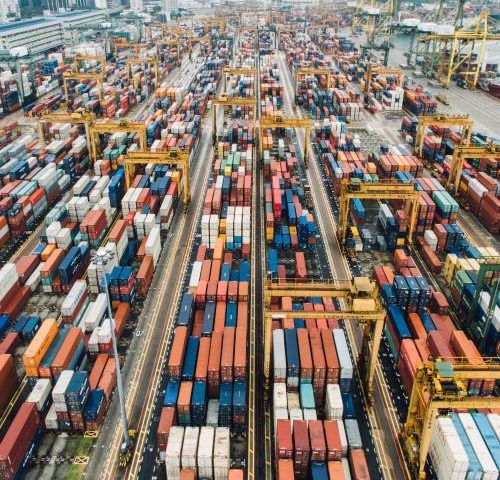
The 2020s have been a difficult time for global trade as a range of problems have held back growth. Among the many challenges, there have been:
- A global pandemic – the like of which has not been seen in a century.
- Conflict and war in Ukraine and the Middle East.
- Soaring global inflation, patchy economic growth and consumer demand, and myriad geopolitical frictions.
- Huge peaks and troughs in costs and availability of shipping from Asia to Europe and North America, and lengthy re-routing of established shipping routes.
- And challenges around supply chains for key imports in manufacturing and production.
Resilience
While some of these pressures have eased, and others may still be with us for some time, there is a sense that importers and exporters alike are proving resilient. They continue to have an eye on deepening their trading opportunities, as we near the middle of the decade. Trade is also empowering women and the smallest businesses to realise gains in productivity and prosperity.
The UK’s Services Success Story
The UK’s trade in services has also continued to grow as a success story in the 2020s. And there are strong growth opportunities ahead in business and professional services, pensions, insurance, health, travel, transport, and creative services, as well as traditional strengths such as financial services.
The UK economy is now 81% services based, and increasing amounts of these activities are exportable to customers overseas. Growth and consumer demand in the Asia-Pacific region is looking particularly strong for 2025 and 2026, and by the middle of the century it is expected to account for as much as 60% of global output.
New Strengths in Manufacturing
For trade in goods, although the trading terms with the EU over the past four years have added to costs and complexity, there are similar new strengths emerging. This is clearest in our Net Zero technology, advanced manufactured goods, life sciences and pharmaceuticals, which we export to the world. Furthermore, supply chains are proving resilient, as new alliances and agreements are forged to ensure UK manufacturers have the metals and minerals needed for the green and low-carbon technologies shaping our world. Trade document digitalisation has started in the UK, and if our trading partners follow suits, can also yield great benefits for international trade.
Fresh markets emerging
There are also new trade agreements around the corner, which can embed in some cases and open up in others, the UK’s access to fast-growing and important markets. In mid-December, new trading preferences, rules of origin and supply chain options will be available with eight countries in the Comprehensive and Progressive Agreement for Trans-Pacific Partnership (CPTPP). Australia will also join the party on Christmas Eve. A trading bloc, once Canada and Mexico also ratify the UK’s Accession Protocol, amounting to 15% of global economic growth.
Government and Business working together
The BCC strongly called for, and welcomed, the creation of the Department for Business and Trade’s Preference Utilisation Unit. It is working to ensure SMEs can derive the most benefit from trade agreements with Australia, New Zealand, Japan, and the CPTPP states. This can help both goods and services exports, whether it’s increased sales for paints made in Doncaster, or legal services provided from Edinburgh.
Upward Trajectory
The prospects are also good for further trade agreements to drive economic growth with Switzerland, India, the Gulf Co-operation Council states, Turkiye, South Korea and Israel. Alongside strong commitment to eliminate non-tariff barriers and expand digital trade with our partners through the World Trade Organisation (WTO), there are reasons to be optimistic.
A new EU relationship
The reset of relations with the EU – covering 47% of UK trade – now needs to make the case for the mutual benefits of removing barriers to trade. But this must be subject to both the UK and EU’s fundamental positions.
There are a number of options including:
- Less costly arrangements on trade in food and plant products
- Efficiencies in safety and security reporting requirements
- Improved business mobility
- More recognition of professional qualifications
- Simplifications of import VAT processes
- And new supply chain and rules of origin flexibilities
These can all deliver greater opportunities for UK and EU businesses and consumers alike.
A Bumpy Road But A Brighter Future
As history shows us, there will still be bumps along the road in trade, but the overall arc is headed in a good direction. With the right trade finance, new trade agreements and investment in export support, the Chamber Network, its 50,000 members and Business Council partners are ready to face the future and sell across the world.
William Bain, Head of Trade Policy, British Chambers of Commerce
More info: www.britishchambers.org





